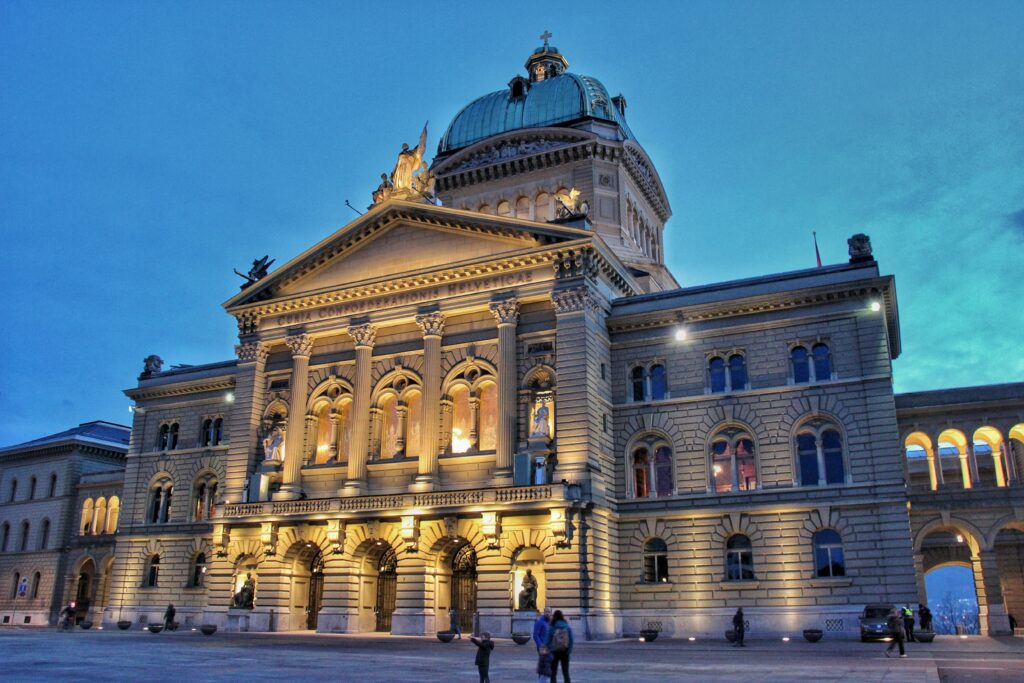الأربعاء, مارس 8th 2023

Switzerland has long promoted itself as the leader of neutrality, brokering peace between warring nations, but the country’s neutrality has actually been rapidly receding since the end of the cold war.
Even through embarrassing tax evasion and money laundering matters, Switzerland has largely managed to maintain its neutral reputation until 2022. But in the last year Switzerland has taken a historic about-face by forfeiting neutrality to appease the EU and the Americans as a pragmatic gesture over the Ukrainian war.
Switzerland’s recent election to the UN Security Council is looking more like a mistake instead of a real achievement for a country dedicated to non-alignment and peace-making. Switzerland’s late accession to the UN back in 2002 was already fiercely opposed by a strong minority of citizens who feared that such a step was no longer compatible with neutrality. The controversial speech made by Swiss Foreign Affairs Minister Ignacio Cassis at the UN Security Council will not likely be remembered as a shining example of Swiss neutrality.
A recent 2020 spy scandal (among others) involving the Swiss Crypto AG company based in Zug that sold large quantities of state-of-the-art encrypted communication devices abroad revealed that both CIA and German BND were snooping on foreign government correspondences for decades via secretly backdoored equipment. A 2020 parliamentary investigation revealed that the Swiss secret services had known about such foreign interference since 1993, but told nothing to the Swiss cabinet until 2019.
Fast-forward to 1996 when Switzerland surreptitiously joined NATO’s military “partnership for peace” without submitting it to a referendum. Ever since, Switzerland has been aligned with NATO’s doctrine, as well as its military interoperability and procurements (F/A-18 Hornets, and soon F-35 fighter jets and Patriot missiles) from the United States. Swiss Defense Minister Viola Amherd had previously asked for proposals to be withdrawn in light of the Ukrainian conflict. But the Federal Office for Defense Procurement (Armasuisse) outpaced that request by signing the purchasing contract with the U.S. government.
As part of this military cooperation, Corps Commander Hans-Peter Walser, head of the Swiss Training Command, is currently undertaking a working visit in the U.S. where he will meet with a delegation from the US armed forces and NATO to discuss bilateral and multilateral cooperation.
A 2022 national security report addressed to the Swiss cabinet described the strategy for safeguarding neutrality as follows:
“At the military level, interoperability with the armies of NATO and the European Union must become the norm, without having to give up our neutrality. Switzerland has been cooperating for a quarter of a century with the Atlantic Alliance through the Partnership for Peace and is therefore already familiar with the requirements of interoperability.
Following the example of other neutral and non-aligned partners such as Finland and Sweden, we should also take part in NATO exercises in accordance with Article 5 of the North Atlantic Treaty.”
Unsurprisingly, when Switzerland offered to mediate between Russia and Ukraine for peace, Russia denied on the grounds that Switzerland was no longer neutral after mirroring EU sanctions.

The Swiss government and its Swiss National Bank (SNB) have been deeply intertwined from the start with Bretton Woods institutions such as the IMF and the World Bank.
The SNB recently reported a CHF132 billion loss which has put its accountability into question by former finance minister Ueli Maurer, and the cantons, which did not receive their rightful share of past profits.
But what has not made as many headlines is the SNB’s controversial reliance on the U.S. market and in particular on Big Tech. At one point, the SNB had a staggering $177 billion in U.S. stock holdings including massive investments in Apple, Microsoft and Google. Rightfully, the SNB has been accused of being nothing more than a giant hedge fund supporting the dollar and the US stock market. When the former SNB chief, Philipp Hildebrand, was forced to resign in 2012 over allegations (later dismissed) of insider trading, he was quickly hired by the American multi-national investment company BlackRock. The change in employers raised eyebrows and concerns that the U.S. and Swiss financial industry may be too well-acquainted.

For decades, Switzerland has been heavily dependent on its trade and investment relations with the U.S. and the EU, well ahead of any other trading block. Because of its reliance on these markets, it is not surprising that Switzerland must now bow to their increasing regulatory pressures, mandates and threats over military affairs, migration, and more. The days of Swiss autarky are long over.
As a result, western-led international legislation originating from the EU, U.S., OECD, and UN seem to regularly end up as a domestic law under a practice referred to as ‘fax diplomacy’ or more broadly ‘international compliance.’ Swiss diplomacy has in effect lost its mojo; cabinet members now spend much more time welcoming international gatherings such as the World Economic Forum in Davos, providing military security as well as diplomatic pouch services.
Like other western countries, Switzerland’s sovereignty has become a shadow of its former self, as mainstream medias have worked for decades to manufacture public consent into depriving its fundamental rights for an alleged greater good.
Democratic rights such as voting to keep out of international regulatory pressures, challenging unfair government decisions, and holding elites accountable for their misdeeds, are now deemed dusty if not openly subversive. Sadly, “progressive” vocabulary has hammered the public debate like ideological totems so much that anything that opposes sovereignty and neutrality can no longer be openly challenged.
This has led to a fairly homogeneous and gutless political elite that controls all branches of the government as well as its subsidized medias and NGOs. As a result, sovereign peoples are no longer to be trusted for important decisions via the voting booth, as they are increasingly regarded as a ‘populist’ enemy requiring management even against their own will.
يمكن مشاركة هذه المقالة وإعادة طباعتها مجاناً، شريطة أن تكون مرتبطة بشكل بارز بالمقالة الأصلية.
